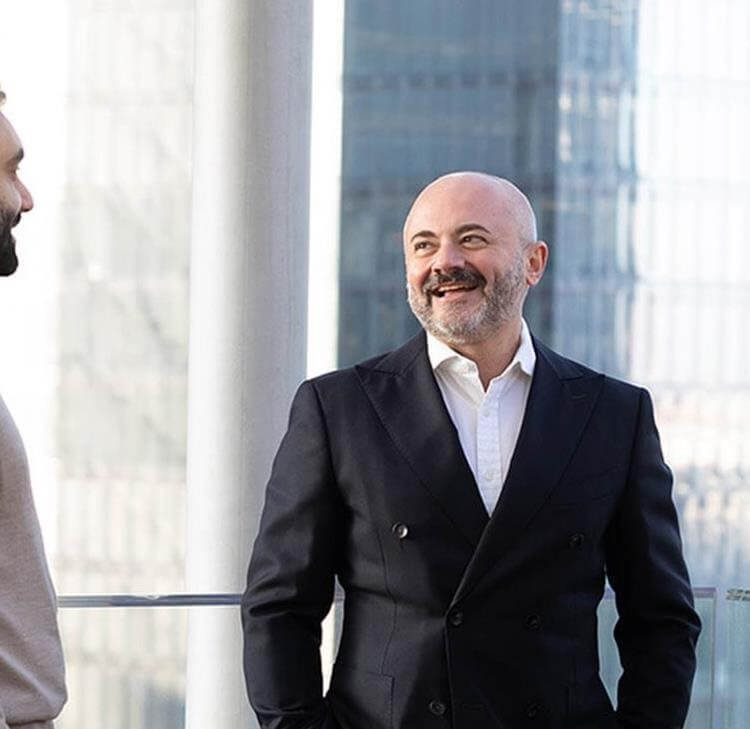Seeing celebrities endorse products has become something that consumers are entirely accustomed to in the modern day. What if, however, that celebrity had never endorsed that product at all? Some companies have used software to make it appear as though celebrities have endorsed a product they have not. A recent example is an advert run by Simmer Limited (a subscription ready-meal delivery service) which resulted in an ASA decision on 17 July 2024.
Bonita Trimmer (Consultant) and Arron Kotecha (Trainee Solicitor) in our Commercial and IP team, examine this issue which is likely to become more widespread. The increasing sophistication of AI images and voice creation and the importance of social media in product promotion is putting in-house marketing teams under pressure to quickly produce inexpensive, effective and eye-catching promotional content.
The Advertising Standard Authority's Decision against Simmer Ltd
Simmer posted paid-for advertisements on Facebook and TikTok, on 28 March 2024.
The adverts utilised video editing software to make it appear as though the Dragons from Dragons’ Den were interested in its ready meals. The video cut from Sara Davies and Deborah Meaden asking questions to a man wearing a SIMMER branded top outlining the price, variety and number of meals that are provided under a monthly subscription to SIMMER. The video then cut back to positive reactions and praise from both Dragons. However, the clips of the Dragons were taken from an episode of Dragons Den which aired on 23 February 2023, which praised ready-meal products from Planthood Ltd, not Simmer.
Four complaints were made to the ASA, on the grounds of the advert being misleading - one of them was from Planthood.
Simmer responded to the ASA, acknowledging that the content was taken from Dragons Den, and stating that their video was intended as April Fool’s social media content, and their marketing team misunderstood this to be used for paid advertising. Simmer said they removed the ‘paid-for’ adverts within two working days and have since implemented a new internal system for approving paid social media content. Simmer also unsuccessfully argued that their advert was intended to be viewed as fictitious, humorous and not something that consumers would take as a serious endorsement from the Dragons.
The ASA banned the adverts for the following reasons:
- Customers would understand them as an endorsement from the Dragons and a suggestion that they liked, invested in and endorsed the product. This was misleading.
- The suggested endorsement was not obviously fictitious and not even light-hearted in tone, as April Fool’s Day posts would normally be. It was also published on 28 March 2024, not 1 April 2024.
- Although the paid-for advert was removed within two working days of its first publication, the same advert was also posted on Simmer’s own Facebook Account and remained there after the paid advert was taken down.
The relevant rules of the CAP code which held to have been breached by Simmer were:
- 3.1 which prohibits adverts which are materially misleading.
- 3.45 which requires marketers to hold documentary evidence of an endorsement or testimonial being genuine unless it is obviously fictitious.
- 3.46 which requires the testimonial/endorsement to relate to the advertised product (the Dragons Den clips here clearly did not relate to Simmer)
- 3.47 which requires advertising claims which appear in testimonials which are likely to be interpreted as factual to not be misleading.
ASA decisions about false celebrity endorsements are quite rare but there have been some other examples – such as one involving Sir Mo Farah.
Diamond Mist commissioned an advert for a vaping product on the side of a bus between April and May 2019 depicting an image of the eyes, eyebrows and bald head of a man. The text stated:
“Mo’s Mad for Menthol. Explore Our Vape Flavours: Find Your Favourite #switchtomist. Some E-liquids contain Nicotine Which Is A Highly Addictive Substance”.
Three complaints were made about this advert being misleading. The complainants who believed that the man looked similar to Sir Mo Farah, challenged whether the advert misleadingly implied that he had endorsed the product. Sir Mo Farah was not among the complainants but had publicly responded to the advert by confirming that he had not featured in it nor endorsed the product.
Diamond Mist argued that the adverts were part of a campaign in which other common names such as Claire, Lucy and Wang were used and that there was a difference in skin complexion between the model in the advert and Sir Mo Farah.
However, the ASA banned the advert from appearing again and instructed Diamond Mist not to imply Sir Mo Farah, or any person has endorsed products if that is not factually accurate.
This was because:
- Despite Mo being short for Mohammed and therefore a very common name, Sir Mo Farah is considered one of the most recognisable athletes and public figures to go by that name.
- Although there were differences in skin tone, the bald head and eyebrow shape were similar to that of Sir Mo Farah’s features and the ASA thought that consumers would make the connection.
Diamond Mist breached rules 3.1 and 3.45 (as covered above) as well as rule 3.48 of the CAP Code. This requires that Marketing Communications do not feature a testimonial (which the ASA treats as encompassing implied endorsements) without permission from the endorser (other than in a narrow set of specified circumstances).
Comment and Legal opinion
Cases of false celebrity endorsements may become increasingly common due to the ease and cost-effectiveness of creating them with AI deep fake technology.
AI produced Deep Fakes are already being used in advertising, sometimes with the celebrities’ consent, such as Cara Delavigne’s collaboration with Zalando’s ‘#whereveryouare campaign’ which was featured across Europe, and Zalando stated cut costs and time for creatives.
However, there are also examples of celebrities being ‘deep faked’ for advertising without their permission. For example, Taylor Swift’s likeness was used as a deep fake advert for a scam, which purported to give away Le Creuset cooking sets to American fans.
The ASA acknowledge deep fake technology to be ‘the 21st Century’s answer to Photoshop’; and, as such, has made it clear that the CAP and BCAP codes are already equipped to deal with the issues arising from it when used in an advertising context.
The decisions show that it is usually fans or competitors that complain to the ASA rather than the celebrity his or herself. This may be because, celebrities will see making a claim for passing off, seeking an injunction and damages, as a stronger deterrent.
This type of passing off involves:
- The celebrity establishing goodwill in the product endorsement market;
- The advertiser making a misrepresentation that causes confusion to the relevant public (a belief that the celebrity endorsed the advertiser’s product or service when they did not);
- Damage being caused to the celebrity’s relevant goodwill as a result of the advertisement (including as to their right to control the image and exclusivity of their ‘brand’).
Although very few claims of this nature get to court, and even fewer get to trial, this is likely to be because they are settled beforehand. The leading examples of celebrities who have successfully pursued passing off by false celebrity endorsement claims to trial are Irvine v Talksport Ltd [2003] EWCA Civ 423 and Robyn Rihanna Fenty v Arcadia Group Brands Ltd (T/A TopShop) [2013] EWHC 2310 (Ch).
In addition to the issues discussed above, false celebrity endorsement adverts may also infringe copyright where relevant licenses have not been obtained from the rights owners (which are often not the celebrity featured).
Given the potential, legal and reputational repercussions that an advert of this nature could cause, marketing teams are encouraged to engage with their legal teams when planning any new advertising campaigns that involve celebrities whom they do not have an agreement to work with.











































